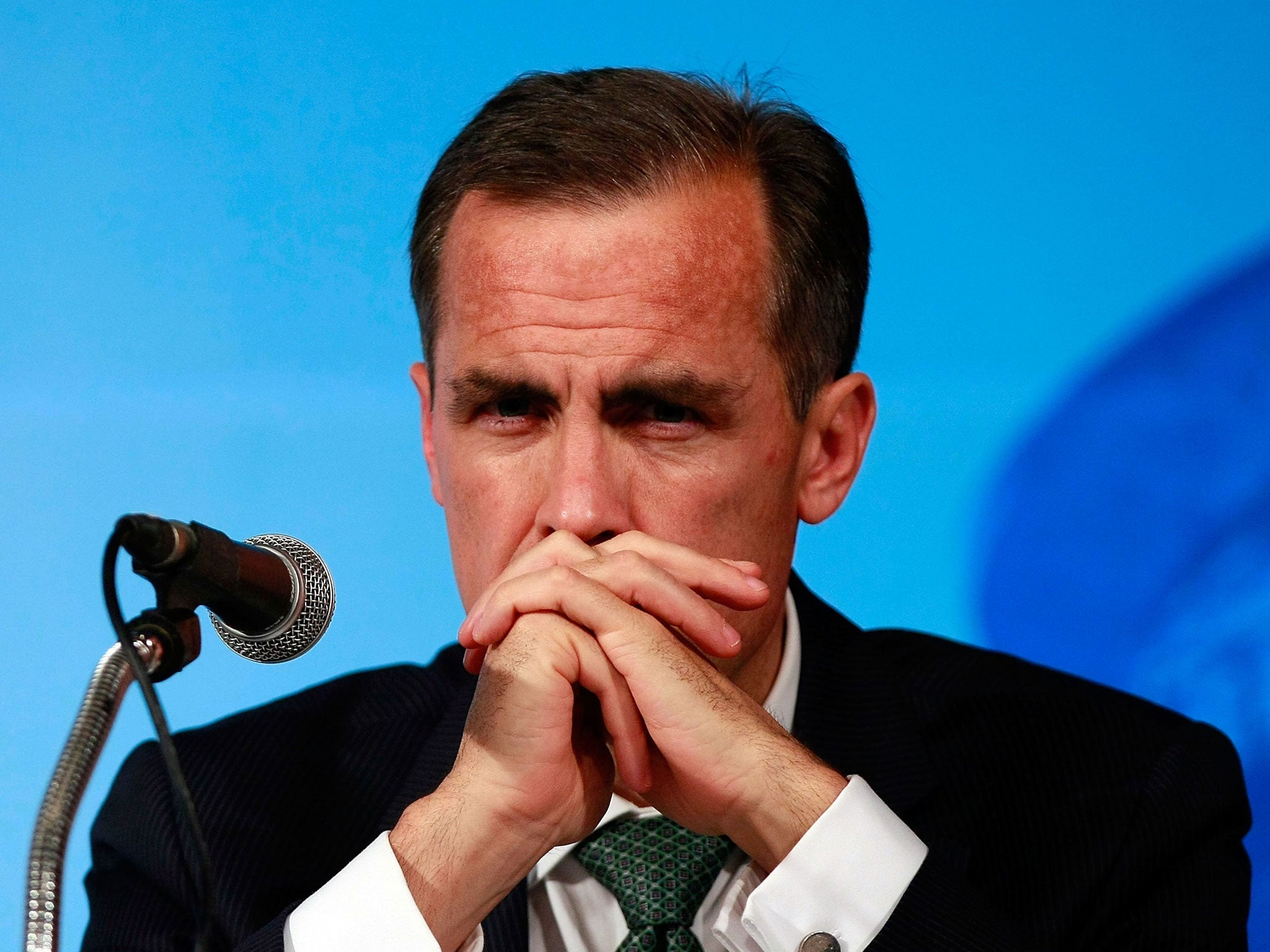The Bank of England's new Governor is about to face a grilling, but what will the markets make of him?
From his early statements it seems Mark Carney is eager to look for new policies to promote growth. Whether he can succeed is another issue


Monetary policy takes centre stage on Thursday. This is not so much because it will be another monthly decision on interest rates by the Bank of England, for these meetings have become something of a non-event. Rather it will be because the newly-appointed Governor of the Bank, Mark Carney, will be before the Treasury Select Committee. It will be the first chance our legislators have to sniff out the views of the man whose appointment was universally acclaimed and whose aims, insofar as they are known, seem to favour active monetary policy to further economic growth.
He will have only one vote on the Bank’s Monetary Policy Committee but as we have seen in the actions of Mario Draghi, President of the European Central Bank, a forceful chair can have a strong influence on what are technically group decisions. Three words from Dr Draghi last summer: that the bank would do “whatever it takes” to save the euro have turned the mood about the euro’s future, at least for the time being.
So what should we look for? Well, in theory during a period of fiscal restraint (and there is a separate argument as to whether our fiscal policy is too tight, not tight enough or about right) you should try to have an expansionary monetary policy to offset it. We certainly have that, as indeed does most of the rest of the developed world, with the lowest interest rates ever and the Bank having bought one third of the national debt. But these policies seem at best to have been not very effective and at worst counterproductive – for example, the very low yields on gilts have had the effect of greatly increasing pension deficits, thereby pushing companies to divert cash from investment towards shoring up their pension funds.
Monetary policy is a blunt instrument and the latest Bank scheme, called Funding for Lending, is designed to push up lending to industry directly by making cheap funds available to the banks. It seems to be having some positive effect but it is still early days. The question now is whether the Bank can and should find other non-conventional policies to promote growth and from his early statements it seems Mr Carney is eager to look for these. There has been talk of changing the formal objective of the Bank to having a money GDP target alongside an inflation target. He spoke at the Davos forum last month of the need for economies to achieve “escape velocity”, in other words to grow fast enough to be able to reduce deficits as a percentage of GDP without imposing overly tight fiscal policy.
Markets being markets, every word of any senior central banker gets dissected. Already the notion that Mr Carney might be soft on inflation has started to weaken the pound, though given the poor record of the Bank of England on inflation over the past four years – far worse than the US or Europe – things would have to go very awry for us to miss inflation targets by more than we have already.
Markets will also be listening closely to any thoughts on banking regulation, for though the rewriting of UK bank regulation is being done by the Government, the Bank of England has to run the system. Canadian banks came through the last crisis in good shape, but during the run-up to the crisis had been much criticised for being fuddy-duddy and failing to take up lending opportunities. Is the price for a safer banking system more restricted credit? Or can a well-run regulator help steer banks between the two extremes?
There is a bigger point here about the role of monetary policy worldwide. For 30 years its principal aim has been to curb inflation. That aim was broadly achieved. But the central banks failed in another objective, ensuring the stability of the banking system. That failure led to boom and bust, and the present slog to resume decent growth. So Mr Governor-elect, what do you propose to do about that?
Asia’s luxury car buyers hold the key
One of the undersung stories in the UK over the past five years has been the way in which the motor industry has come through the recession. We were the only large market in Europe to see sales rise last year. Strong domestic demand helped, but the real drive behind the recovery has been the rise of exports to Asia. In 2007 some 55 per cent of car exports by value went to the rest of the EU. Last year that had fallen to 35 per cent. Exports to China, little more than 1 per cent in 2007, now account for 11.5 per cent of the total, with a similar amount to the rest of Asia. At the end of last year our trade in cars by value briefly went into surplus and the last time we were anywhere near balance was in 1992. The UK remains, by world standards, a small producer, with about 2.5 per cent of the total but this has crept up, largely thanks to the heavy presence in luxury and super-luxury cars. We are an efficient producer for Nissan, Honda and Toyota and that is fine. But the margin is at the top. Our famous brands are almost entirely foreign owned: Jaguar Land Rover by Tata, Rolls-Royce (and Mini) by BMW and Bentley by VW. But the present balance of owners seems to work. It is quite encouraging and a pointer to the niches where industry can return to the UK.

Join our commenting forum
Join thought-provoking conversations, follow other Independent readers and see their replies